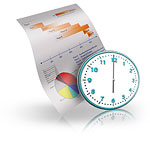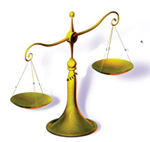 Project Management Align PMBOK Project Management Align PMBOK
VIRA provides project management services according to PMBOK standard:
 Project Integration Management Project Integration Management
Project integration Management includes the processes required to ensure that the various elements of the project are properly coordinated. It involves making tradeoffs among competing objectives and alternatives to meet or exceed stakeholder needs and expectations. The integrative processes also are one of the elements of project management excellence.
The integrative project management processes include:
- Develop Project Charter and project management plan
- Determine the relative value of project activities on appropriate and approved basis In order to measure physical progress
- Control of real progress and preparation reporting delays and reasons of deviation and develop delays Compensation plan
- Full review of the project contract before and after of notification
- Identify cases which can lead to Claim and inform project manager

 Project Scope Management Project Scope Management
Project Scope Management includes the processes required to ensure that the project includes all the work required, and only the work required, to complete the project successfully. It is primarily concerned with defining and controlling what is or is not included in the project.
The Project Scope Management processes include:
- Collect requirements and Scope Planning
- Audit and acceptance of scope
- Scope Control

 Project Time Management Project Time Management
Project Time Management includes the processes required to ensure timely completion of the project.
The Project Time Management processes include:
- Activity Definition
- Activity Sequencing
- Activity Duration Estimating
- Schedule Development
- Schedule Control
- Updating plan in according to percent of actual progress and delays

 Project Cost Management Project Cost Management
Project Cost Management includes the processes required to ensure that the project is completed within the approved budget.
The Project Cost Management processes include:
- Cost Estimating
- Resource Estimating (materials, Machinery, human resource)
- Cost budgeting and develop cash flow
- Resource planning (materials, Machinery, human resource)
- Cost Control and preparation of Periodic progress reports of budget and costs

 Project Quality Management Project Quality Management
Project Quality Management includes the processes required to ensure that the project will satisfy the needs for which it was undertaken. It includes “all activities of the overall management function that determine the quality policy, objectives, and responsibilities and implements them by means such as quality planning, quality assurance, quality control, and quality improvement, within the quality system”.
The Project Quality Management processes include:
- Identifying quality standards (Due to the nature of the project)
- Developing control process of performance and standards compliance

 Project Human Resource Management Project Human Resource Management
Project Human Resource Management includes the processes required to make the most effective use of the people involved within the project. It includes all the project stakeholders—sponsors, customers, partners, individual contributors, and others.
The Project Human Resource Management processes include:
- Identifying project key roles
- Project organization structure Development
- Developing Job description and responsibilities of roles
- Developing data flows in organization structure
- Developing evaluation criteria of team performance
- Project management office establishment

 Project Communications Management Project Communications Management
Project Communications Management includes the processes required to ensure timely and appropriate generation, collection, dissemination, storage, and ultimate disposition of project information. It provides the critical links among people, ideas, and information that are necessary for success.
The Project Communications Management processes include:
- Determining the information and communications needs of the stakeholders
- Determining how information distributed between stakeholders
- Reporting formats development
- Holding meetings of Facilitating project in workshop level
- Holding meetings of Facilitating project in Employer level

 Project Documentation Management Project Documentation Management
Project documentation is defined in two general areas of technical documentation and project management documentation.
In this process project documentation is identified, developed and categorized.
The Project Documentation Management processes include:
- Identifying pattern of Classification requirements
- Identifying and gathering documentation according to Predefined list.

 Project Risk Management Project Risk Management
Risk management is the systematic process of identifying, analyzing, and responding to project risks. It includes maximizing the probability and consequences of positive events and minimizing the probability and consequences of adverse events to project objectives.
The Project Risk Management processes include:
- Risk identification
- Qualitative risk analysis
- Quantitative risk analysis
- Risk response planning
- Monitoring and controlling risk response planning
 Project Procurement Management Project Procurement Management
Project Procurement Management includes the processes required to acquire goods and services, to attain project scope, from outside the performing organization. For simplicity, goods and services, whether one or many, will generally be referred to as a product.
The Project Procurement Management processes include:
- Procurement planning (materials, Machinery)
- Developing Procurement cycle
- Implementation, control, and monitoring of these processes
 Project Contracts Management Project Contracts Management
Project contracts management assess contract type and adjust Contract provisions according to FIDIC standard and General Conditions of Contract to project work progress and Prevent delays caused by incomplete contracts, including claims, the overtimes,… .
The Project contracts Management processes include:
- Developing contracts plan
- Assessing contracts types
- Adjusting Contract provisions
- contract Closure

|